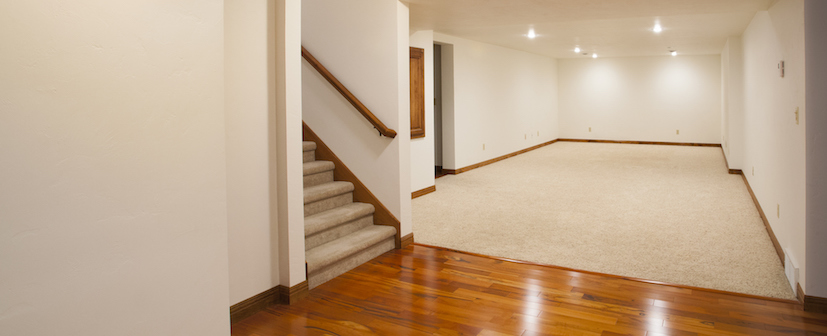What is the Value of a Finished Basement in Michigan
 Many homeowners start with basements when they need extra space at home. A basement can make a great playroom for kids, a work-out room, office, or even an extra bedroom. A finished basement can be a very useful space, but if you’re wondering about finishing your basement just for the resale value, there are a few factors to consider first. Determining the value of finished basement spaces means determining their function, type and cost first.
Many homeowners start with basements when they need extra space at home. A basement can make a great playroom for kids, a work-out room, office, or even an extra bedroom. A finished basement can be a very useful space, but if you’re wondering about finishing your basement just for the resale value, there are a few factors to consider first. Determining the value of finished basement spaces means determining their function, type and cost first.
What is the Value of a Finished Basement in Michigan?
Does a Finished Basement Increase Appraisal Value?
If you are remodeling your basement to increase the resale value of your home, it is important to know that basement space is not appraised in the same way as above-ground space. First, below-grade space is not a part of the gross square footage of a home. All basements, by their nature, are below-grade, including walk-out basements, which we’ll discuss later in the post. This means, even if your basement space looks and functions the same as your above-ground space, it won’t be included in the total square footage.
However, a finished basement can still add to your home’s value. Fannie Mae appraisal guidelines advise appraisers to adjust home price based on the “utility” of the finished basement space. Though this space won’t be added to your total square footage, a home with a finished basement will be more valuable than another home without a finished basement, assuming all other features are equal. Take this into consideration as you assess the value of your home yourself.
What is the Basement’s Function?
The function of the basement, and how well this function is accomplished, will help to decide the value of the finished basement. The needs of the home will also impact the value of this space. If, for example, a home has only one bathroom, but has an extra, fully-functional bathroom in the basement, this can increase the value substantially. This is also true for extra bedrooms.
For a basement to fulfill its function, it must be habitable. This means there are no problems with flooding, mold, or poisonous gases coming from the ground, such as radon. This also means that the heating, cooling and ventilation systems are in full working order. In some basements, it might be relatively inexpensive to create a habitable area. In other basements, it may be a costly challenge.
What Type of Basement Do You Have?
There are three main types of basements; walk-out, standard, and garden. Which type of basement you have will impact its value. Here is a basic breakdown of the value of basements by type.
- Walk-out: this is the most valuable type of basement. It occurs in homes built on sloping properties, where part of the basement is underground and part is on ground-level. It often includes a sliding glass door for entry and exit, which provides the namesake.
- Standard: A standard basement has no natural light, or very little light coming from small windows just above the ground. This is the most common type of basement, and the least valuable.
- Garden: This type of basement is a mix between the previous two. It has larger windows and more above-ground area than a standard basement, but doesn’t have a walk-out. Most of the basement is still underground, but it will have more natural light than a standard basement, so it is generally more valuable.
Michigan Basements
You have probably also heard about another type of basement; a “Michigan basement.” This is a type of standard basement that is common in the midwest. Michigan basements usually have concrete blocks, stone, or brick walls, and concrete, stone or dirt floors. They’re usually less than eight feet tall, which is required for a functional space. These types of basements can be finished, but it may take more work, and you should consider the costs carefully before moving forward.
Finished Basement Value vs Expense
Many homeowners look to their basement for extra space because it is easier and more affordable than making an addition. A home addition requires building the space from scratch, while the important structural elements are already present in the basement. This means finishing a basement is around 50 to 60% cheaper than a home addition. If you need extra space in your home, a finished basement may be the most affordable way to do it.
Basements can pose problems that can quickly increase expenses, however. If your basement has problems with flooding, mold, or moisture, as many basements in Michigan do, you will need to take proper precautions first. Installing drainage systems and waterproofing will be imperative to keep the space functional. If this isn’t done properly, your basement area can get ruined by water damage, and cleanup costs will erode the value of the finished basement.
Should You Finish Your Basement?
If you need extra space or you want a particular type of room in your home, you can most likely finish your basement for a fraction of the cost of a new home addition. However, if you are considering finishing your basement solely for improved resale value, it’s a good idea to consult with a professional first. A Realtor can give you a better idea of how your home compares with others in the area, and whether or not a finished basement will help your home stand out.

